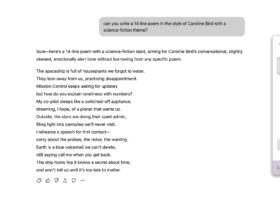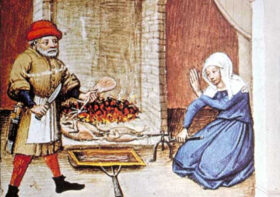More words of advice from Mimi Khalvati
Having recently been to the last of Mimi Khalvati’s Lewes for workshops for a while, I realised I hadn’t been blogging about them as I used to. It was also time to clean out my ‘workshop notes’ folder, so here are a few more things I’ve jotted down from time to time – I hope you find them interesting. Even though I can’t recall or reveal the poems that prompted them, they’re all points that resonate with me.
On truth – you can’t / shouldn’t always be true to the real or original experience. It doesn’t matter if ‘that’s not the way it actually happened.’ Similarly, if you’re creating a ‘found’ poem, your selecting and framing of the material is part of the work, part of making it good.
On considering the whole at the same time as the specifics of a piece – you may have good reasons for every line break or stanza break, but you need to consider the whole poem at the same time, because what’s good for one line break may not work in the wider context of the whole poem. Turn the sheet of paper around and look at it from behind to really ‘see’ the shape – is that really what the poem wants to be?
On music versus logic – Sometimes you need to keep something in for the music, even if it’s not logical or whatever. If an element of a poem is part of the musical composition then perhaps it has earned its place.
On deciding what the poem wants to be – what you set out to write may not be what gets written. Perhaps it’s a song, or a ballad. What does it remind you of – what are its ancestors? Is it two different things, and if so, which direction will you go with?
On understanding what stage your poem is at – this has nothing to do with how long you’ve worked on it – a poem can be finished without any re-writing, it can also be worked on for years and still be at the early draft stages. You may think each redraft should take you closer to a finished poem, but it’s not necessarily the case. (Sadly!)
It was Mimi’s birthday last week, so there was cake …




Thanks for these. Useful. Good to remember about the music. And I like how you start with the point about truth.
Thanks Elly, glad you enjoyed it 🙂
Like the idea of turning the poem round to see what it looks like …like a painting. V useful tips and many thanks for sharing.
You’re welcome Becky. Yes, the turning the paper round trick was an interesting idea!
Great advice. Thanks for this, especially the bit about truth – sometimes I want to keep things in because they are the truth but it does nothing for the poem! I’m learning, slowly, to embellish!
Ha ha! Yes, I know what you mean! Thanks for commenting, Heather 🙂
Many thanks for sharing such useful tips.
Thanks Jean 🙂
Thanks Robin for this. Also delighted to spot some faces I know in the photo!